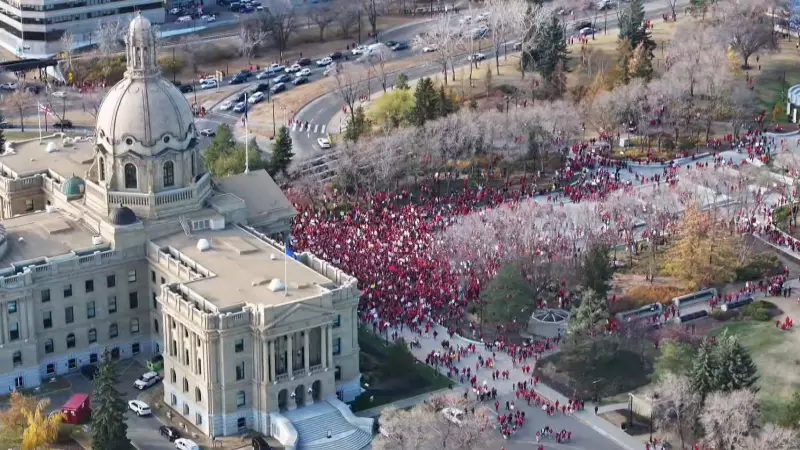
In a striking development that's raising alarm bells across Alberta's political and religious communities, Edmonton's Anglican Bishop has delivered a powerful condemnation of the provincial government's constitutional maneuvering.
The controversy centers on Premier Danielle Smith's proposed legislation that would invoke the Constitution's notwithstanding clause before any court challenges—a move critics argue undermines the very foundation of Canada's judicial system.
A Dangerous Precedent for Democracy
Bishop Stephen London didn't mince words when addressing what he sees as a fundamental threat to Canadian democracy. "Using the clause pre-emptively sets a dangerous precedent," he stated, emphasizing that the constitutional tool was designed as a last resort, not a first option.
The proposed legislation, which the government frames as protecting "parental rights," would require schools to notify parents if their children under 15 want to change their names or pronouns. By invoking the notwithstanding clause from the outset, the government aims to shield the legislation from Charter of Rights and Freedoms challenges.
Religious Leaders Sounding the Alarm
What makes this situation particularly noteworthy is the source of the criticism. When religious leaders—traditionally cautious about political interventions—speak out against government policy, it signals deep concern about constitutional overreach.
Bishop London's position reflects growing unease among various faith communities about the potential consequences of normalizing pre-emptive use of the notwithstanding clause. His intervention adds significant moral weight to the legal and political debate unfolding across the province.
The National Implications
This isn't just an Alberta issue. Constitutional experts nationwide are watching closely, concerned that Alberta's approach could inspire similar tactics in other provinces. The precedent being set could fundamentally alter how Canadian governments approach legislation that might conflict with constitutional rights.
As Bishop London aptly noted, the notwithstanding clause exists within a delicate constitutional balance. Using it proactively rather than reactively threatens to upset that balance in ways that could echo through Canada's legal landscape for years to come.
The stage is set for a significant constitutional showdown, with religious voices now joining legal experts and human rights advocates in questioning the government's approach to legislation affecting vulnerable youth.





